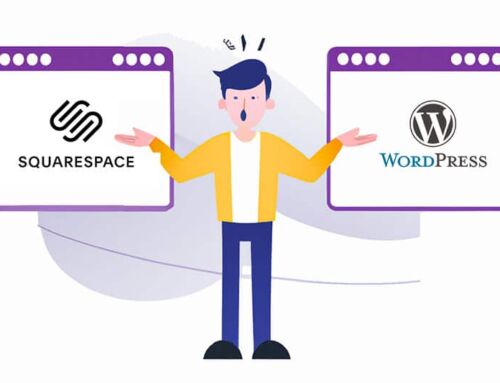Google SEO Basics – Be Found On Google

Being found by your customers on Google is an essential part of the success of your website. However, this is the aim of almost every business that launches a website, so competition for places in your market is fierce. Most web surfers will not flick through more than 3 to 5 pages in Google to find the service they are looking for. So if you want to be in the game, you need to have your site ranked where your potential customers are looking.
To achieve a high ranking in search engines and particularly Google, you need to optimise your website content. As you are no doubt aware, this is called search engine optimisation or SEO. This means restructuring and altering your website, so that it will rank well for particular terms in the search engines results.
Search engines such as Google create their listings automatically. They “crawl” or “spider” the web. The spider visits a web page, and everything it finds goes into the search engine index. The index contains a copy of every web page that the spider finds, and if a web page changes the index is updated with new information.
Once a site has been indexed, it is then entered into the search engine, which sifts through the millions of pages recorded in the index to find matches to a search and ranks them in order of what it believes is most relevant.
Unfortunately, it is almost impossible to guarantee a top search engine ranking across all the search engines all the time.
There are many reasons for this including, the 1,000’s of new sites that are added to the index, a competitor for the same keyword phrase has resubmitted or the search engine changed its algorithm or it’s URL submission procedure.
Search engines do not reveal their algorithms and only give you a general idea of what they consider when ranking a site, therefore optimisation is a constant process of analysis, submission, monitoring, and fine tuning. However, there are some basic techniques that need to be applied.
The basic components of optimising your website for the best possible search engine ranking are:
Choosing The Right Keywords
Choosing the right keywords to base your site optimisation around is an important first step. General or generic keywords are usually not the best approach, and sometimes it’s better to be a little more specific and using keywords which relate to your product or service.
For example, let’s talk about www.scorchedmedia.com.au — Our new website design and development brand.
The problem is, there are a LOT of website design companies, but how can we get scorchedmedia.com.au to appear in Google’s top 10 rankings? Focusing on the keyword “website design” alone would be almost impossible as it’s too general and there is too many other developers using this as their primary phrase.
We need to be more specific, which means:
1. Targeting a more suitable market that is looking for a design and content editing solution.
2. Competing with fewer websites targeting the same keywords.
3. Optimising for keywords that people actually use when performing searches – natural search.
Targeting a suitable market will depend on your website, as well as the products and services you offer. Try to be specific with your keywords, and remember that people no longer use single keyword search phrases – the average search phrase contains 3-5 related words.
For example, if you’re optimising for a web development site and you’re located in Brisbane, Australia, use keywords such as “web development Brisbane” or “web development services Australia”.
To find out how many websites are competing with your keywords — either intentionally or not — simply do a search on Google and note down how many results are returned. In our case, for “website design brisbane”, we’re competing with 1,770,000 sites. The more sites that are competing for your keywords, the harder it will be to get on the front page.
The first place to start is using a key word generator such as Google’s Adwords Suggestion Tool ( https://adwords.google.com/select/KeywordToolExternal). Enter the words that you think that your customers will search for your services and see the results.
The best practice is optimise every page on your site for a different search phrase. Each search phrase should contain 2 to 3 highly targeted keywords, with around 300 words to each page.
Page Title
The page title is possibly the most important tag in your entire website, and it is displayed at the top of your Internet browser. This is due to many search engines placing a lot of influence on what you have used in your website title, It is crucial that your page title includes your most important keyword.
Your title should contain no more than about 10 words in length (100 letters and spaces) and should be exclusively directed towards words that are specifically related to your product or service. This is because search engines figure you would only be putting items in your website title that are very closely related to your websites topic.
However you still need to ensure that your page title makes sense, as it will be read by people as well as search engine spiders.
Using our example for scorchedmedia.com.au, we have used, “Scorched Media | Website Design Brisbane |” As our main tag, and then we add the specific page title to the tag.
Have a look at our web solutions page:
Our page title is Scorched Media | Web Design Brisbane |. Web Design and Web Development Solutions.
Usually, the closer to the front of your title tag the keywords are placed, the better.
Your Web Copy and Keyword Density
Your page title should use the
tag and the Google ranking algorithm dictates that if you’re using a
tag, then the text in between this tag must be more important than the content on the rest of the page.
Here’s a quick example:
Google ranks the following heading:
Scorched Media | Web Design Brisbane | Web Design and Web Development Solutions
As much more important than this text:
In the 19 seconds we have to capture your attention, we want to tell you about the Scorched Media difference which is all about a refreshing change that is redefining website design and website development, and not only in Brisbane.
One of the most common errors made by people, is the creation of long web pages with lots of text and graphics.
Not only are these types of pages hard for your site visitors to read, but they can take too long to load and can affect your search engine ranking.
The first few lines of text on your web page are extremely important, as nearly all search engines look at these lines for keywords and phrases.
Search engines will assign more relevancy to your Meta Tags and Page Title if they are also included as part of your body content. This will in turn lead to your website obtaining a high search engine ranking.
The more a search engine encounters a common theme throughout the page, the higher your website will rank on those words. However, do not over use a keyword or phrase as this will harm your ranking as the search engine may think you are spamming your keywords and decrease their relevancy.
We recommend a page length of 300 to 350 words. This should ensure that your content is not only easy to read, but easier to include your keywords and phrases while maintaining your marketing message.
You should aim to have a keyword density of about 3-7%, which means the number of keywords as a percentage of total words on a page.
Another reason that the first few lines of text on your web page is very important, is due to some search engines using your first 120-200 words as your page description in the search results.
Remember. Don’t overdo the keyword density, however don’t overlook it either. A good example would be:
Before:
- Scorched Media provides web design and site management services to our clients.
After:
- Scorched Media provides web development services from Brisbane to our clients worldwide.
Notice how we use the keywords more efficiently the second time around?
Link Popularity
Link popularity is now considered to be a major part of the ranking criteria used by all of the major search engines.
This means that search engines will place a greater relevance on your rank the more other sites link to your website. Therefore, the best way to improve your ranking is to get lots of links to your website.
However, your ranking will receive a better boost if the link comes from a site with a better ranking than yours.
Also, inbound links from ‘high quality’ sites will give your search ranking more of a boost than inbound links from sites that only have a few sites linking to them. Inbound links from sites which contain similar content to yours will give you an even bigger boost.
Some search engine optimisation techniques advocate the use of link exchanges to increase the number of links to your website, but there is a fine line.
Google and many leading search engines are now banning sites that artificially inflate their link popularity by participating in a link popularity program.
There are several main components if you want to build up your link popularity without artificially inflating your link popularity. The first is good links from Yahoo and the Open Directory Project. Both of these sites are human based directories that have a lot of influence over search results. If your website is listed in the correct category with a good description, links from these two websites will give your ranking a strong boost.
Another way to increase your link popularity is to participate in newsletters and online forums that relate to your website. You don’t want to just jump in and give a plug for your URL. You must participate in the discussion as an expert or authority who gives good advice. When you sign your name at the bottom of your posting, be sure to include a signature that includes a link to your website. If these forums and newsletters are archived and remain online, search engines continue to see them and the links they contain.
However, the best way to build long-term link popularity is to offer good content and features that provide real value to your audience. As people discover your website and realise its benefits, the likelihood of them linking to your website naturally increases.
In Summary
Google can be one tough search engine to crack, but remember – Search engine optimisation is not a black art or black magic. It just takes good planning and time.




